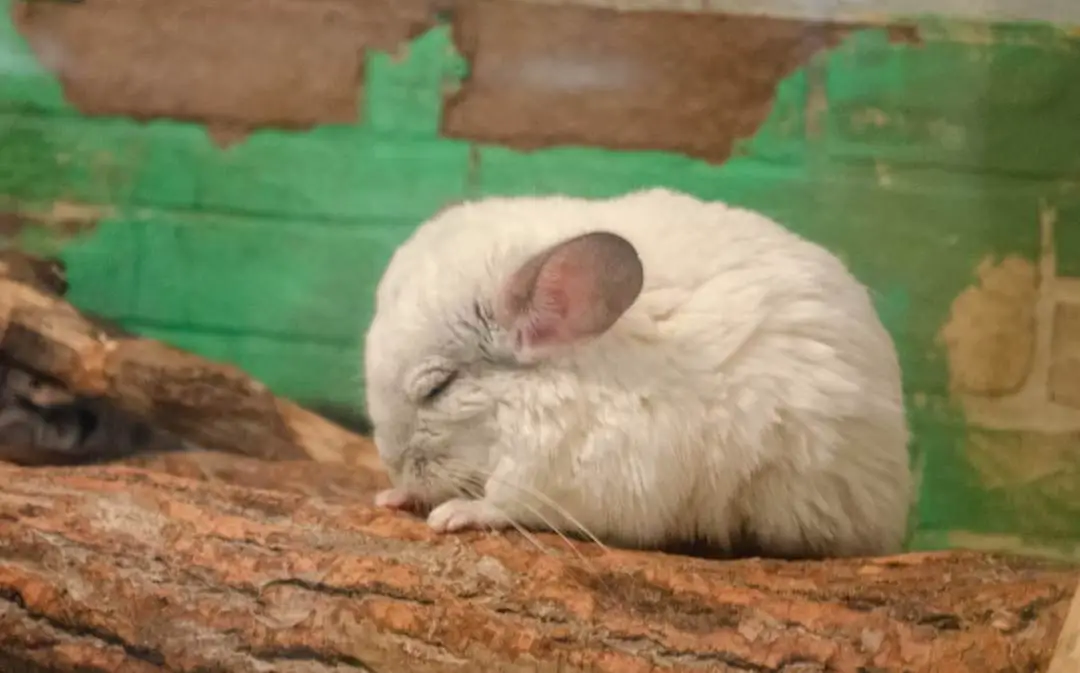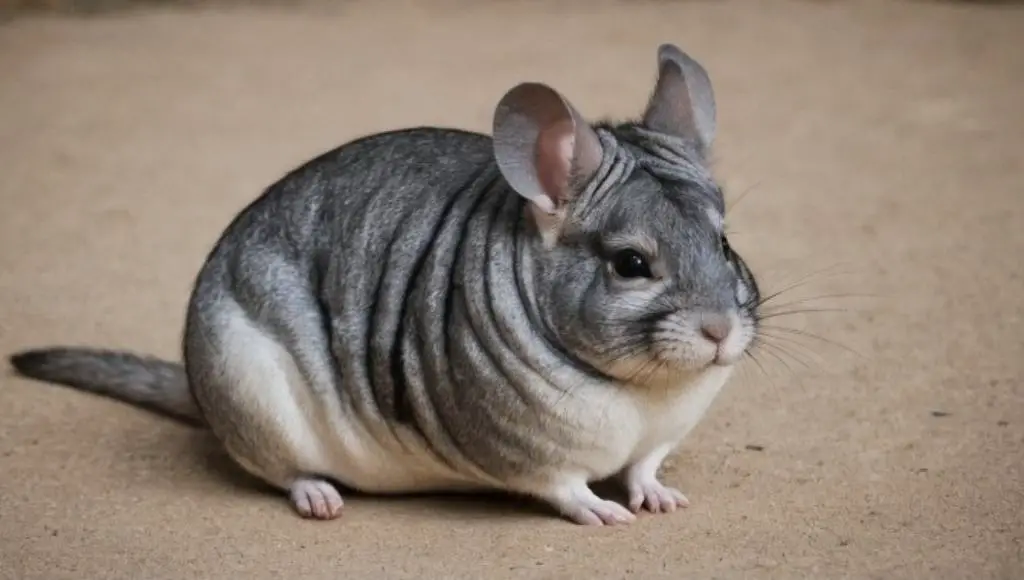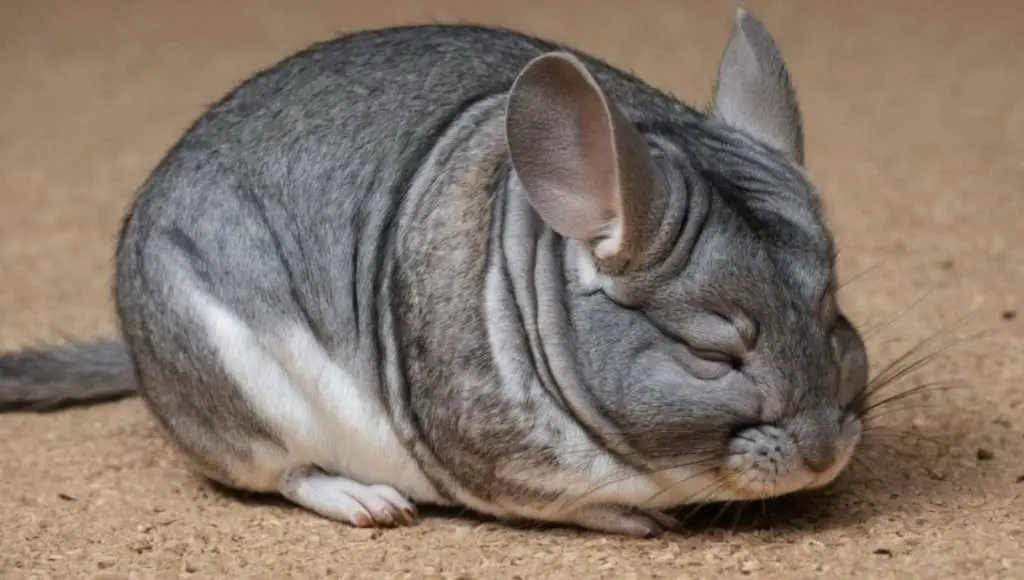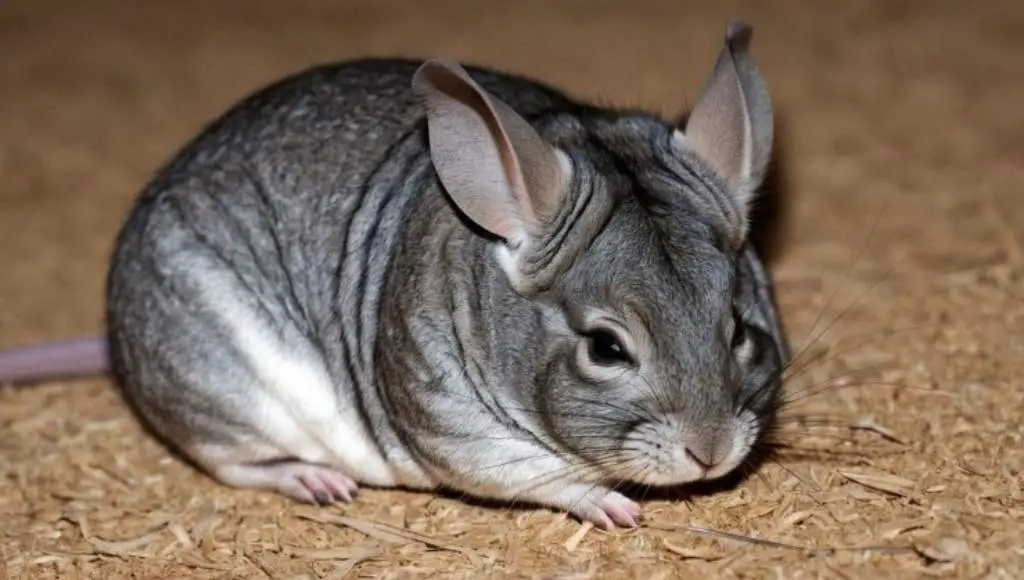8 Factors Affecting Chinchilla Lifespan With Helpful Tips

If you’re curious about the fascinating world of chinchillas, you’ve come to the right place.
Today, let’s talk about one crucial aspect of these adorable fluffballs: chinchilla lifespan.
Buckle up, as we uncover the secrets behind these pint-sized creatures and discover just how long our furry friends can stick around.
Chinchilla Lifespan
Chinchillas have a relatively long lifespan compared to many other small mammals, on average, they live between 10 and 15 years, although some individuals may live even longer with proper care.
Factors such as genetics, diet, exercise, and overall health can influence their lifespan.
Providing a suitable environment and regular veterinary care can help maximize a chinchilla’s lifespan.
Factors affecting chinchilla lifespan

Chinchillas are adorable and fascinating creatures, and as responsible pet owners, it’s essential to understand the various factors that can influence their overall health and longevity.
Here are some of the major factors affecting chinchilla lifespan:
1. Medical Issues
Just like any other living being, chinchillas can experience medical issues that can impact their lifespan.
Some common health problems in chinchillas include dental issues, respiratory infections, gastrointestinal disorders, and fur or skin conditions.
Regular veterinary check-ups are crucial to detect and address these issues early on.
It’s important to provide your chinchilla with a clean and hygienic living environment to minimize the risk of infections and diseases.
2. Genetics
Genetics can play a significant role in determining a chinchilla’s lifespan.
Some chinchillas may be predisposed to certain genetic conditions that can affect their overall health and longevity.
Responsible breeders strive to produce healthy chinchillas by carefully selecting breeding pairs and minimizing the risk of passing on genetic disorders.
When adopting or purchasing a chinchilla, it’s advisable to inquire about the health history of the parents to ensure you’re getting a healthy and well-bred pet.
3. Diet and Nutrition
Proper diet and nutrition are vital for the well-being and longevity of chinchillas. Chinchillas are herbivores and have specific dietary requirements.
A balanced diet should consist of high-quality hay, such as Timothy hay, which provides essential fiber for their digestive system.
Pellets formulated specifically for chinchillas should also be included in their diet.
Avoid feeding them foods that are high in fat, and sugar, or contain harmful additives.
Fresh water should be available at all times, and treats should be given sparingly to prevent obesity and related health issues.
Learn more about safe food for chinchillas.
4. Housing and Environment
The housing and environment provided to chinchillas can significantly impact their lifespan.
Chinchillas require a spacious and well-ventilated cage or enclosure that allows them to move around and engage in natural behaviors like jumping and climbing.
The cage should be made of wire mesh to prevent escape and provide adequate ventilation.
Bedding material should be dust-free to protect their respiratory health.
Chinchillas are sensitive to temperature extremes, so it’s important to keep their environment within a comfortable range, typically between 60-70 degrees Fahrenheit (15-21 degrees Celsius).
Additionally, chinchillas should be protected from direct sunlight, drafts, and excessive noise.
5. Lack of Physical Activity and Exercise
Just like us humans, chinchillas need their daily dose of exercise to stay happy and healthy.
Lack of physical activity can lead to a sedentary lifestyle which can have a negative impact on their overall well-being.
Chinchillas are natural jumpers and climbers, so it’s essential to provide them with enough space to explore and play.
A lack of physical activity can contribute to obesity, muscle weakness, and even respiratory problems.
So, let’s make sure our chinchillas have plenty of opportunities to stretch their legs and engage in some playful antics!
6. Breeding Practices
Breeding practices can play a significant role in determining the lifespan of chinchillas.
Responsible breeding is crucial to minimize the risk of genetic disorders and health issues that can be passed down from one generation to another.
A breeder who prioritizes the health and well-being of their chinchillas will take measures to ensure that only healthy individuals are bred, reducing the likelihood of hereditary diseases.
By selecting healthy chinchillas for breeding, we can contribute to the long and healthy lives of these adorable creatures.
7. Stress Management
Chinchillas, like any other living beings, can experience stress.
High stress levels can lead to various health problems and potentially shorten their lifespan.
Stress can be caused by numerous factors, including loud noises, sudden changes in their environment, improper handling, and social isolation.
It’s essential to create a calm and secure environment for our chinchillas, provide them with hiding spots, and ensure they have a routine that they can rely on.
Additionally, gentle and proper handling techniques can help minimize stress and build a trusting bond between us and our furry friends.
8. Veterinary Care
Proper veterinary care is vital for the overall health and longevity of our chinchillas.
Regular check-ups with a knowledgeable exotics veterinarian can help identify any potential health issues early on.
Vaccinations, parasite prevention, and dental care are also crucial aspects of maintaining their well-being.
In case of any signs of illness, it’s important to seek professional help promptly.
By providing our chinchillas with the necessary medical attention, we can ensure they receive the best care possible and increase their chances of enjoying a long and happy life.
What do chinchillas usually die from?

Chinchillas can die suddenly from heart attacks, strokes, sudden physical trauma, or environmental issues like excess heat, cold, or moisture.
Other reasons why chinchillas might die include gastrointestinal stasis, gastroenteritis, respiratory infections, heatstroke, and loneliness.
The most common cause of death in chinchillas is enteritis, which is inflammation and/or infection of the intestines.
Learn more about identifying a dying chinchilla.
Effective ways of prolonging chinchilla lifespan

Here are some of the most effective ways of prolonging chinchilla lifespan:
1. Provide a spacious and stimulating environment: Chinchillas are active animals that love to explore and play. It’s important to provide them with a spacious cage that allows for plenty of movement. You can also add tunnels, platforms, and toys to keep them mentally stimulated and prevent boredom.
2. Create a balanced diet: Chinchillas have specific dietary needs. The majority of their diet should consist of high-quality pellet food designed for chinchillas. This provides them with the necessary nutrients. Additionally, fresh hay should always be available as a source of fiber. You can also offer occasional treats like dried fruits, but be mindful of the sugar content.
3. Keep their habitat clean: Chinchillas are clean animals, and a clean living environment is essential for their well-being. Regularly clean their cage by removing waste, uneaten food, and soiled bedding. This helps prevent the growth of harmful bacteria and keeps your chinchilla healthy.
4. Provide fresh water: Chinchillas should always have access to clean and fresh water. Use a water bottle attached to the side of their cage to prevent contamination or spillage. Make sure to check and refill the water bottle daily.
5. Offer regular exercise: Chinchillas are active creatures and need daily exercise to maintain good health. Let them out of their cage for supervised playtime in a safe and chinchilla-proofed area. This allows them to stretch their legs, explore, and engage in natural behaviors like hopping and climbing.
6. Control the temperature: Chinchillas are sensitive to heat and humidity. It’s important to keep their environment cool and well-ventilated. Avoid exposing them to extreme temperatures, as it can lead to heatstroke or other health problems. Ideally, the temperature should be kept between 60-70°F (15-21°C).
7. Schedule regular vet check-ups: Just like any other pet, chinchillas need routine veterinary care. Regular check-ups can help detect any underlying health issues early on and ensure your chinchilla receives the necessary vaccinations and preventative treatments. Your vet can also provide guidance on proper nutrition and care.
8. Minimize stress: Chinchillas are easily stressed by loud noises, sudden movements, or changes in their environment. It’s important to keep their living area calm and predictable. Handle them gently and avoid any rough or sudden movements. This helps minimize stress and anxiety.
9. Give them plenty of love and attention: Chinchillas are social animals and thrive on companionship. Spend time bonding with your chinchilla through gentle handling, talking to them, and providing opportunities for interaction. This helps create a strong bond and a happy, healthy chinchilla.
By following these guidelines, you’ll be providing your chinchilla with the best possible care and increasing their chances of a long and fulfilling life..
FAQs
How long do chinchillas live?
Chinchillas have a relatively long lifespan compared to other small mammals. On average, they can live for 10 to 15 years, but with proper care and a healthy lifestyle, some chinchillas have been known to live up to 20 years!
What factors can affect a chinchilla’s lifespan?
Several factors can influence the lifespan of a chinchilla. These include genetics, diet, exercise, living conditions, and overall health. Providing a balanced diet, regular exercise, a stress-free environment, and routine veterinary care can all contribute to a chinchilla’s longevity.
Do male and female chinchillas have different lifespans?
In general, there is no significant difference in lifespan between male and female chinchillas. Both genders have the potential to live equally long if they receive proper care. However, individual health and genetics can play a role in determining lifespan, regardless of gender.
Can chinchillas live longer in captivity than in the wild?
Yes, chinchillas typically have a longer lifespan in captivity compared to their wild counterparts. In the wild, chinchillas face various threats such as predators, harsh weather conditions, and limited access to food and water. Captive chinchillas, on the other hand, are protected from these dangers and can live longer with the right care.
How can I ensure my chinchilla lives a long and healthy life?
To promote a long and healthy life for your chinchilla, it’s essential to provide them with a balanced diet consisting of high-quality hay, pellets, and fresh vegetables. Regular exercise, such as supervised playtime outside their cage, is crucial. Additionally, maintaining a clean living environment, providing mental stimulation, and scheduling routine check-ups with a veterinarian are all important for their well-being.
What are some common health issues that can affect a chinchilla’s lifespan?
Chinchillas are prone to certain health issues that can impact their lifespan, including dental problems, respiratory infections, gastrointestinal disorders, and fur-related conditions. Regular dental checks, proper hygiene, a dust bath routine, and prompt veterinary care for any signs of illness or discomfort can help prevent and manage these issues, ultimately promoting a longer lifespan for your chinchilla.
Conclusion
In conclusion, owning a chinchilla can bring joy and companionship to your life for many years to come. With an average lifespan of 10 to 15 years, these furry friends are a long-term commitment worth making. So, embrace the opportunity to create lasting memories and cherish the love of your fluffy chinchilla for a lifetime!
